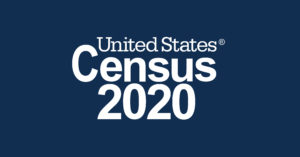In light of the COVID-19 pandemic, the U.S. Census Bureau has adjusted 2020 Census operations to protect the health and safety of employees and the public and to ensure a complete and accurate count of all communities based on guidance from federal, state, and local health authorities.
April 1 was Census day and households should have received a postcard in the mail from the Census Bureau with a 12-digit census ID that will allow them to log on to the website to complete the 2020 Census. Individuals can also complete the census online without the 12-digit ID using their address. To respond via phone, call (844) 330-2020. Households can also complete the census by phone without the 12-digit census ID.
Self-reporting will continue through the end of May – If someone hasn’t responded by April 8, the Census Bureau will mail them a questionnaire.
The door-knocking that was scheduled to take place from April through July is on hold here due to the virus.
According to UNC Asheville Assistant Professor of Political Science, Ashley Moraguez…
“For every individual that’s counted in Buncombe County, that’s worth about $1,600 annually in federal funding for the state and local government, and over 10 years, that’s a lot of money,” she said. “So if we’re undercounted even by 1,000 or 2,000 people, we’re talking about big money that can affect funding for infrastructure – better roads, water system, education funding, affordable housing and food stamps. The census can even drive where hospitals are located based on population density. And the census determines how much representation we have in federal and state government.”
Moraguez reminds us that because the census only happens once a decade, the impact of undercounting any segment of our population will be felt for a full 10 years. RESPOND NOW
“It’s a way to bring your federal tax money back to our community, and to make sure you have the amount of representation you deserve in the Congress and state legislature,” said Moraguez.
In the coming weeks, look on Facebook for “Bulldogs Count for the 2020 Census,” and on Instagram, @bulldogscount.
https://www.unca.edu/events-and-news/stories/april-1-census-day-covid-endanger-complete-count/
Important Census Dates
March 12 – 20 – Households received official Census Bureau mail with detailed information on how to respond to the 2020 Census online, by phone, or by mail.
- It has never been easier to respond on your own, whether online, over the phone or by mail—all without having to meet a census taker.
April 1 – Census Day – a key reference date for the 2020 Census – not a deadline.
- When you respond, you’ll tell the Census Bureau where you live as of April 1, 2020, and include everyone who usually lives and sleeps in your home. You can respond before or after that date.
April 8 – if someone hasn’t responded by April 8, the Census Bureau will mail them a questionnaire.
April 29 – May 1 – The Census Bureau will count people who are experiencing homelessness over these three days.
- The Census Bureau counts people in shelters, at soup kitchens and mobile food vans, on the streets, and at unsheltered, outdoor locations such as tent encampments.
April 16 – June 19 – Census takers will work with administrators at colleges, senior centers, prisons, and other facilities that house large groups of people to make sure everyone is counted.
May 27 – August 14 – Census takers will interview homes that haven’t responded to the 2020 Census to help make sure everyone is counted.
December – The Census Bureau will deliver apportionment counts to the President and Congress as required by law.
March 31, 2021 – By this date, the Census Bureau will send redistricting counts to the states. This information is used to redraw legislative districts based on population changes.
https://2020census.gov/en/important-dates.html
More Posts for Show: Asheville FM News Hour
